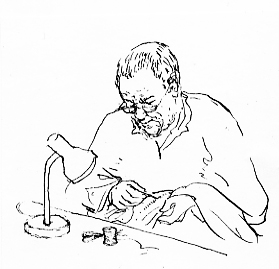What can be done?
Why information is important
Every PCa patient is different, and if you want the best treatment for your particular case, the better informed you are about alternative treatments and your potential choices, the more likely you are to get it.
The information given to victims by their medical advisers varies, in our own experience, from the excellent to the inadequate. Under the NHS, unfortunately, it may be a matter of luck how much information you receive.

To the newly diagnosed, and even to us old hands, there are a bewildering number of different treatments available. They may be described in opaque medical terms (see our link below to a glossary of translations). Some treatments may be available in only one or two places in the UK or as part of an experimental trial, while others are only available abroad.
It is becoming increasingly common to combine different types of treatment. For example, radiotherapy may be considered to be more effective if it is combined with a lengthy course of hormone therapy both before and after the radiotherapy.
Side effects
Having different treatments can affect not just the progression of the cancer, but also the incidence of different adverse side effects, such as incontinence and erectile dysfunction (inability to achieve an erection). If you have this cancer it is natural to want treatment almost regardless of the side effects. But the side effects are significant and widespread amongst patients and they should not be dismissed lightly. Two US experts tell how patients can minimise side effects and maximise quality of life in this video. Also see page devoted to side effects on this website.
Follow-up treatment
After the first round of treatment patients are monitored at regular intervals by PSA blood tests. If the PSA levels increase significantly then this may be an indication that the cancer has recurred. Having one kind of treatment may make it difficult to have another kind subsequently. (You can have surgery and radiotherapy afterwards, but not vice versa.)
It may be that the best course is to have no treatment at all, but to wait and monitor your PSA. For older patients, some treatments may not be considered appropriate or be offered because of their attendant risks and side effects.
The advice you receive from your specialist may also be influenced by their specialism. There have been claims that surgeons tend to recommend surgery and oncologists recommend radiotherapy.
Glossary
A translation of medical terms can be downloaded here.